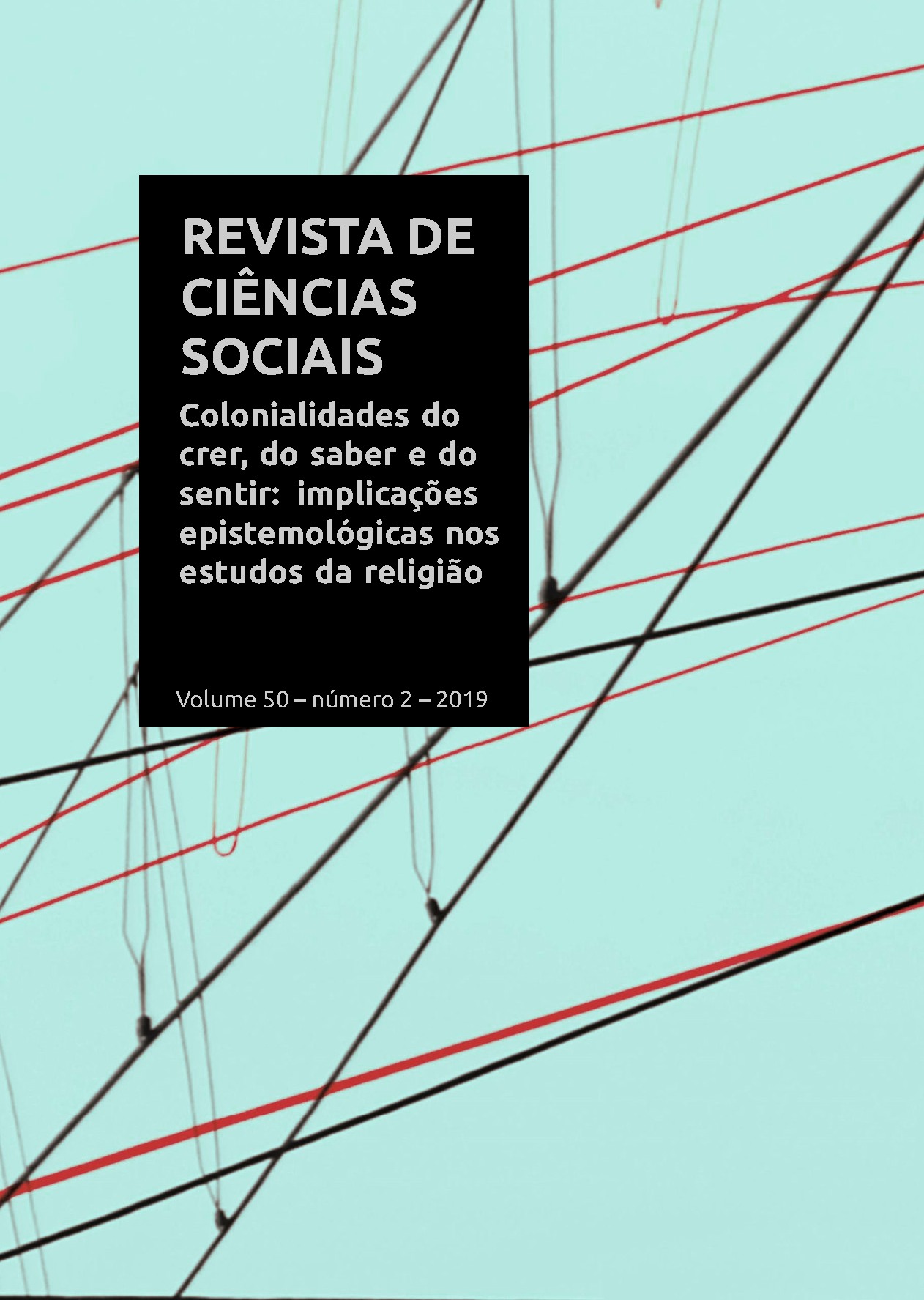Of the philosophy the spirit as a philosophy of freedom while opening the religious debate in Latin America caribbean
Keywords:
Philosophy of Freedom, Philosophy of the Spirit, Philosophy of Education, Philosophy of Religion, Philosophy of Liberation, Theology of LiberationAbstract
The philosophical formulation of Farias Brito in Brazil and Francisco Romero in Argentina, between the nineteenth and twentieth centuries touches the same themes: consciousness, freedom and existence. Both are in Latin American Caribbean where the atmosphere of the hegemonic thinking of Positivism imposes itself in opposition to a tradition coming from the Second Iberian Scholasticism, the Monarchy and the instituted Religion. Also, both influenced by a German tradition - Brito by Kant and Schopenhauer and Romero by Husserl, Scheler and Hartmann - formulate what can be called Philosophy of the Spirit as Philosophy of Freedom. If until the nineteenth century, the theme of religion was elaborated by both Hispanic and Portuguese Scholastics, with the advent of Positivism, established religion enters into its process of problematization along with the political regime. However, it will be with the presence of Germanic thought in Latin American culture that the theme will be replaced, only now in a secular environment, marked by the values of Positivism and the Republic. The hypothesis of this work is that the formulation of the Philosophy of Spirit as a Philosophy of Freedom, formulated by Farias Brito and Francisco Romero, are the bases in the Latin American Caribbean Continent for the formulation of a Philosophy of Religion in perspective, now no longer scholastic, but Germanic. The work moves within the scope of theoretical research and in dialogue with the ethnic and historical issues of the Latin American Caribbean Continent, and at the same time seeks links with the Philosophy of Liberation, Theology of Liberation and the Pedagogy of Liberation.
References
ACERBONI, Lidia. A Filosofia Contemporânea no Brasil. São Paulo: Editorial Grijalbo Ltda., 1969.
ARGUEDAS, José Maria. Os Rios Profundos. São Paulo: Companhia das Letras, 2005.
BARROS, Roque Spencer Maciel de. A Ilustração Brasileira e a Ideia de Universidade. São Paulo: Convívio: Editora da Universidade de São Paulo, 1986.
BÍBLIA DE JERUSALÉM. Nova edição, revista e ampliada. 3ª. Impressão. São Paulo: Paulus, 2004.
CERUTTI GULDBERG, Horácio Victorio. Filosofía de la Liberation Latino Americana. México, D.F.: Tierra Firme, 1983.
DICIONÁRIO DE FILOSOFIA con Autores y Temas Latino Americanos. Bogotá: Editorial El Buho, 1986.
DUSSEL, Enrique/MENDIETA, Eduardo/BOHÓRQUEZ, Carmen (Editores). El Pensamiento filosófico latinoamericano, del Caribe y “latino” [1300-2000]: Historia/Corrientes/Temas/Filósofos. México: Editora XXI, 2011.
DUSSEL, Enrique. Filosofía de la Liberación. Buenos Aires: Asociación Ediciones La Aurora, 1985.
DUSSEL, Enrique. Filosofia da Libertação na América Latina. São Paulo: Edições Loyola: Piracicaba: Editora UNIMEP: S/D.
DUSSEL, Enrique. Historia General de la Iglesia en America Latina. Tomo I/1. Introducción General a la Historia de la Iglesia en America Latina. Salamanca. CEHILA: Ediciones Sígueme, 1983.
FARIAS BRITO, Raimundo de. Finalidade do Mundo – Estudos de Filosofia e Teleologia Naturalista – 1º. Volume. 2ª. Edição. Rio de Janeiro: Revista dos Tribunais Ltda.: Instituto Nacional do Livro, 1957.
FRANCA, Leonel S.J.. Noções de História da Filosofia. 23ª. Edição. Livraria Agir Editora, 1987.
FREYRE, Gilberto. Ordem e Progresso: Processo de Desintegração das Sociedades Patriarcal e Semipatriarcal no Brasil sob o Regime de Trabalho Livre: Aspectos de um Quase Meio Século de Transição do Trabalho Escravo para o Trabalho Livre; e da Monarquia para a República. 5ª. Ed. Rio de Janeiro: Editora Record, 2000.
FREYRE, Gilberto. Perfil de Euclides e outros perfis. 2ª. Edição aumentada. São Paulo: Record, 1987.
GUY, Alain. Panorama de la Filosofía Iberoamericana: Desde el Siglo XVI hasta nuestros dias. Maracaíbo, Venezuela: Universidade Católica Cecílio Acosta: Ediciones Astro Data, S.A., 2002.
GUIMARÃES, Aquiles Côrtes. O tema da Consciência na Filosofia Brasileira. São Paulo: Editora Convívio, 1982.
KANT, Immanuel. LOGIK - WERKE – Band III. Deutschland: WBG, Vissen Verbindet: 2011.
MORA, José Ferrater. Dicionário de Filosofia. Tomo IV. São Paulo: Edições Loyola, 2001.
MORENO, César Fernández. América Latina em sua Literatura. São Paulo: UNESCO: Editora Perspectiva, 1972.
NOGUEIRA, Alcântara. Farias Brito e a Filosofia do Espírito. Rio de Janeiro/São Paulo: Livraria Freitas Bastos S/A. 1962.
PAIM, Antonio. O Estudo do Pensamento Filosófico Brasileiro. 2ª. Edição revista e ampliada. São Paulo: Editora Convívio, 1986.
PLANT, Raymond. HEGEL. São Paulo: Editora UNESP, 2000.
RABELLO, Sylvio. Farias Brito ou Uma Aventura do Espírito. Rio de Janeiro: Editora Civilização Brasileira, 1967.
ROMERO, Francisco. Filosofía Contemporánea: Estudios y Notas. 3ª. Edición. Buenos Aires: Editorial Losada, S.A., 1953
SALAZAR BONDY, Augusto. Existe una Filosofía de nuestra América? 11a. Edición. México: Siglo Veintiuno Editores, 1988.
SÁNCHEZ, María Cecilia. Institucionalización de la Filosofía. IN: Boletín de FILOSOFIA. Universidad Católica Blas Cañas. No. 9/1997-1998/Volume 3.
VITA, Luís Washington. Momentos Decisivos do Pensamento Filosófico. São Paulo: Edições Melhoramentos, 1964.
VITA, Luís Washington. Compêndio de Filosofia. 2ª. Edição. São Paulo: Edições Melhoramentos,1955.
ZEA, Leopoldo. (Coordinación e introducción). América Latina en sus Ideas. México: UNESCO: Siglo Veintiuno Editores, 1986.
Published
How to Cite
Issue
Section
License
Autores que publicam nesta revista concordam com os seguintes termos:- Autores mantém os direitos autorais e concedem à revista o direito de primeira publicação, com o trabalho simultaneamente licenciado sob a Creative Commons Attribution License, que permite o compartilhamento do trabalho com reconhecimento da autoria do trabalho e publicação inicial nesta revista.
- Autores têm autorização para assumir contratos adicionais separadamente, para distribuição não-exclusiva da versão do trabalho publicada nesta revista (ex.: publicar em repositório institucional ou como capítulo de livro), com reconhecimento de autoria e publicação inicial nesta revista.
- Autores têm permissão e são estimulados a publicar e distribuir seu trabalho online (ex.: em repositórios institucionais ou na sua página pessoal) a qualquer ponto antes ou durante o processo editorial, já que isso pode gerar alterações produtivas, bem como aumentar o impacto e a citação do trabalho publicado (Veja O Efeito do Acesso Livre).



